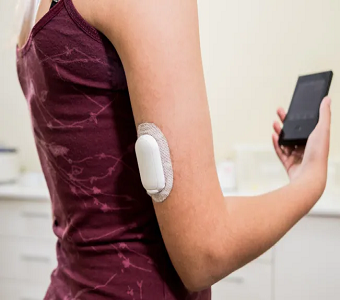We are looking forward to December catalysts and watching two companies with near term readouts that we think the market is under appreciating. Both present good risk/reward opportunities, assuming data readouts are positive. We believe that the current data they’ve presented until now makes both December readouts a low hurdle.
Company 1: Affimed (AFMD) – ASH Readouts December 1-4
In late August, Affimed announced a deal with Roche’s Genentech to develop preclinical NK cell immunotherapies. AFMD received $96M upfront. We believe this deal was a huge validation for Affimed’s ROCK platform, which is able to generate different kinds of antibodies.
At ASH in December, Affimed will present data on their own candidates, most notably AFM13 for Hodgkin lymphoma. We’ll be focusing on two data readouts:
- AFM13 combination with Keytruda in Hodgkin lymphoma in relapsed or refractory patients.
This study has enrolled Hodgkin patients that have failed standard therapies, including first line therapy Seattle Genetics (SGEN) brentuximab vedotin (Adcetris). Currently, Keytruda is used as an option for these refractory patients. In two studies (Keynote 13 and 87), Keytruda has shown ORR of 60-70% and CR of about 20% (see below).
Combination of AFM13+Keyturda has reported higher rates with ORR at 89% in the highest dose cohort and CR of 28%. The company will report preliminary data on progression free survival.
Keep Eye on Durability: 6mos PFS data for Keytruda alone was about 70%. This is the number that Affimed has to meet or beat at 6 months. We expect the company to announce some data at ASH. If they can meet the Keytruda figure, then AFMD makes a good case to be used as a combination therapy with Keytruda for refractory patients.
- AFM13 Monotherapy for relapsed and refractory CD30 positive lymphoma
This small 8 patient study has shown a 50% ORR in patients that have failed at least 1 prior therapy for CD30 positive lymphoma. AFMD reported 1/8 (13%) CR and 3/8 (PR). This data reinforces the activity of AFM13.
The current standard in R/R CD30-positive HL is SGEN’s Adcetris. Adcetris has shown a 75% ORR, with CR in 34% of patients.
Although still early in development, Affimed is hoping to show that by combining AFM13 with a NK cell product (cord blood-derived and activated NK cells), it can further increase response rates and durability in patients with relapsed/refractory CD30+ lymphoma. This upcoming data readout can be an early indicator of this.
Upside/Downside Risk
With the $96M upfront from Genentech, Affimed is expected to end 2018 with ~$130M (~$1.85/share). The company expects to be funded until Q4 2019. So downside is $1.85, assuming the company’s pipeline is a 0. We think this is an extreme case, and highly unlikely.
Upside can be based on market size for lymphoma and any value added to their pipeline and ROCK platform. SGEN’s Adcetris is expected to be a $500M drug in 2018, with peak sales of over $1B. This is a similar market opportunity for AFM13. We think AFMD can justify a $500M market cap ($370M enterprise value), which would equal roughly $7/share.
We are most looking forward to AFMD’s durability in the combination study with Keytruda at ASH. With the recent Genentech deal, the company received a large upfront sum and, more importantly, validation for their ROCK platform. With overall interest in NK cells picking up, we think the market is under appreciating Affimed.
Achillion (ACHN) December Readouts
Achillion will report data from 6 studies in December, including key proof-of-concept data for lead asset ACH-4471 in C3 glomerulopathy (C3G) and paroxysmal nocturnal hemoglobinuria (PNH).
We believe the most promise for ACH-4471 lies in C3G, so we’ll be looking at the 14 day data and 12 month data for December (see below).
C3G is a rare kidney disease affecting ~8,000 people in US/EU. Patients with C3G have an over active alternative pathway – which deposits C3 fragments in the kidney overtime and eventually leads to a non-functioning kidney. There is currently no approved treatment for these patients, which gives ACHN the opportunity to apply for accelerated approval if data is sufficiently positive.
ACH-4771, a factor D inhibitor, has shown to reduce alternative pathway activity and reverse the effects of an overactive alternative pathway that C3G patients struggle with. 14 day proof of mechanism action (June 2018) data showed that biomarkers (intact C3, C3 fragments, Ba&Bb products and proteinuria) are all moving in right direction. Increase in Intact C3, reduction in C3 fragments, Ba&Bb products and Proteinuria (see below).
The data above comes from a sample size of 4, which is limited and early. If December data can replicate the same trends seen above and show that they are durable past 14 days, then ACHN could have a candidate with estimated potential sales of $700M in a field with no competition.
What to expect with December data:
- Data from a 14-day biomarker study: ACHN will report interim data from an additional 8 patients in this trial. We will be looking to see if the trends in these patients follow that of the initial 4 (increase in intact C3, reduction in C3 fragments, Ba&Bb products and proteinuria).
- Data from 3-month interim of 12-month, open label Phase 2 study: This study is evaluating the long term efficacy and safety of ACH-4471 in C3G. The study will enroll 20 patients, including those who wish to roll over after completion of the 14-day biomarker study, and initial 3-month interim data will be announced in December. Here we’ll be looking to see if the same biomarker trends are durable at 3 months.
Upside & Downside
With strong early data and no approved treatments for C3G, ACHN may be able to negotiate an accelerated path to registration using the combined data package from its current Phase 2 studies. We also believe the company could have pricing power with a small target population (~8K patients) and no other treatment options.
With a $300,000 drug price and 30% penetration rate (2,400 patients), Achillion can hit peak sales of $720M. With positive data and a pipeline valuation of $0, we think company can warrant a $6 share price (100% upside).
On the flipside, ACHN has a pro forma December 2018 cash balance of $265M ($1.90/share). Assuming data flops and it trades at cash and remaining pipeline is a 0, that presents downside of 37% from current $3/share market price.
PropThink contributors DO NOT have any positions in any of the equities mentioned in this note
Access This Content Now
Sign Up Now!




